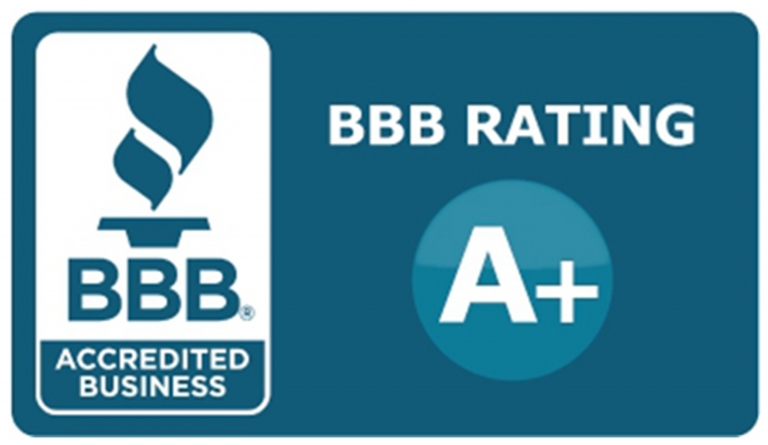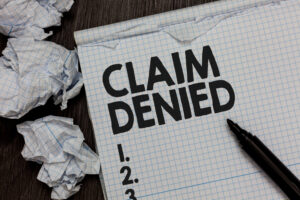
Short and long-term disability insurance claims can be overwhelming, especially under the strict regulations of ERISA (Employee Retirement Income Security Act). Having a knowledgeable and experienced Louisiana short and long-term disability insurance attorney by your side can help you overcome whatever challenges you face.
J. Price McNamara has years of experience and a long track record of success guiding clients through every step of their ERISA disability claims. He’ll protect your rights and do everything he can to ensure you receive the benefits you deserve. Whether you’re at the initial application stage or dealing with a denied claim, he’s ready to provide the legal assistance you need.
Call (504) 420-6962 for more information and a free consultation now.
Louisiana Short And Long- Term Disability Insurance Guide
- Why Choose J. Price Mcnamara for Your Disability Claim or Appeal?
- How ERISA Works and Why You Need to Know
- Why ERISA is Complicated
- Why Medical Evidence is Critical to Winning a Disability Insurance Claim
- How an Attorney Can Help You Appeal a Denied Disability Insurance Claim
- Schedule a Consultation With Louisiana Disability Lawyer J. Price McNamara
For a free legal consultation, call (225) 201-8311
Why Choose J. Price Mcnamara for Your Disability Claim or Appeal?

If your short or long-term disability company denies your claim, don’t lose hope. At J. Price McNamara, recovering your denied insurance benefits is 100 percent of what we do. With 30 years of experience fighting insurance companies, we have the knowledge to help you overturn claim denials.
As a former insurance company attorney, we know exactly what tactics the insurance company hopes you’ll fall for, but we’re here to instruct you what you should do instead. We offer free consultations to answer any questions you have, because we believe in providing you with the information you need to make informed decisions.
Never try to handle the appeals process alone. Let us guide you through every step of the way and fight for your rights. Contact us today for your free consultation and show us why J. Price McNamara is the best decision you can make for your disability claim or appeal.
How ERISA Works and Why You Need to Know
ERISA is a federal law enacted in 1974 to protect the interests of employees in private industry by regulating the administration of employee benefit plans, including disability insurance. ERISA establishes standards to ensure employees receive the benefits promised by their employers and sets forth fiduciary responsibilities for plan administrators.
If you’re filing a disability insurance claim, working with our Louisiana short and long-term disability insurance attorney who understands ERISA’s provisions is critical to getting the money you have coming. J. Price McNamara is standing by to put his extensive experience to work for you.
The Significance of ERISA in Disability Insurance Cases

ERISA governs most private sector employee benefit plans, including health insurance, retirement plans, and disability insurance. When an employee files a claim for disability benefits, ERISA provides the framework for the claim’s processing, appeal, and litigation.
This law establishes uniform standards nationwide, protecting employees’ rights regardless of where they live in the US. ERISA’s federal oversight helps prevent abuses and ensures that benefit plans operate in the participants’ best interests.
Rights and Protections Provided by ERISA
ERISA provides several key rights and protections to employees, including the following:
- Disclosure and reporting: Plan administrators must provide participants with essential information about their benefits, including plan rules, financial information, and documents about the plan’s operation and management.
- Fiduciary responsibilities: Those who manage and control plan assets must adhere to specific standards of conduct. These standards include acting prudently and diversifying plan investments to minimize the risk of significant losses.
- Claims process and appeals: ERISA outlines the procedures for filing a disability claim, including timelines for decision-making and the appeals process if insurance denies a claim. Employees have the right to fully and fairly review their denied claims.
- The right to sue: When a denial occurs, participants have the right to sue in federal court to challenge it and seek benefits. ERISA preempts state laws, so these cases typically occur in federal court.
Click to contact our insurance claim lawyers today
Why ERISA is Complicated

ERISA can be complex due to its detailed regulations and stringent requirements. One major challenge is the standard of review in court cases. Courts often apply a deferential standard, meaning they give considerable weight to the plan administrator’s decision unless they deem it arbitrary and capricious. It can make overturning a denial more difficult.
In addition, ERISA imposes strict deadlines for filing claims and appeals. Missing these deadlines can result in losing the right to benefits. The law also limits the type of evidence claimants can introduce in court, often restricting it to the administrative record available to the plan administrator at the time of the decision.
ERISA cases require thorough preparation and a deep understanding of the law and medical evidence. As such, claimants often benefit from the assistance of our experienced Louisiana short and long-term disability insurance attorney who knows the intricacies of ERISA. We can maximize your chances of securing your rightful benefits.
Common Challenges in Short and Long-Term Disability Insurance Claims

Filing for short and long-term disability (STD and LTD) benefits can be challenging. Claimants often face several common issues, including denied claims, insufficient medical evidence, and complicated appeals processes. Louisiana short and long-term disability insurance attorney J. Price McNamara understands these challenges and knows how to address them.
Some of these challenges include:
- Denied claims: One of the most common challenges is the denial of claims. Insurance companies often deny benefits for various reasons, such as a lack of sufficient medical evidence, missed deadlines, or failure to meet the policy’s definition of disability.
- Insufficient medical evidence: Disability claims require comprehensive medical documentation to prove the extent and impact of the claimant’s condition. Often, insurance companies deem the provided medical evidence insufficient, leading to denied or delayed claims.
- Complex policy language: Disability insurance policies often contain complex and ambiguous language. Understanding your policy’s terms and conditions can be challenging, and misinterpretation can lead to denied claims.
- Employer Interference: Sometimes, employers fail to submit necessary documentation or provide incomplete information, hindering the claims process.
- Surveillance and investigations: Insurance companies may conduct surveillance to verify the legitimacy of a claim. This surveillance can be stressful for claimants and sometimes lead to unfair conclusions if taken out of context.
However, Louisiana short and long-term disability insurance attorney J. Price McNamara has the skill and experience to defeat a denial in the following ways:
- Understanding and interpreting your policy.
- Gathering and presenting compelling medical evidence.
- Meeting all procedural requirements and deadlines.
- Representing you in appeals and litigation if needed.
Our skilled lawyer can advocate on your behalf, leveling the playing field against insurance companies and significantly increasing your chances of a successful outcome. With legal help, you can focus on your health while we handle your claim.
Being well-prepared and having our Louisiana short and long-term disability insurance attorney can help you overcome whatever obstacles you face and obtain the support you need.
Complete a Free Case Evaluation form now
Why Medical Evidence is Critical to Winning a Disability Insurance Claim

Medical evidence is the cornerstone of any disability insurance claim. Whether you’re filing for short-term or long-term disability benefits, the strength and comprehensiveness of your medical documentation can significantly impact the outcome. Insurance companies rely heavily on this evidence to determine your disability’s legitimacy and severity.
Louisiana short and long-term disability insurance attorney J. Price McNamara knows the critical role medical evidence plays in a claim. He also knows that effectively compiling and presenting that evidence can make the difference between an approved claim and a denial.
Medical evidence that will be critical to your claim includes the following:
- Proof of disability: Medical evidence serves as the primary proof that you’re disabled and can’t work. It provides objective data that supports your subjective complaints of pain, fatigue, or other symptoms.
- Establishing severity and duration: Detailed medical records also help establish your condition’s severity and how long you’ll likely be disabled. It is crucial for both short-term and long-term claims, as insurers must understand how your condition affects your ability to perform your job duties.
- Meeting policy definitions: Disability insurance policies have specific definitions and criteria for what constitutes a disability. Medical evidence must align with these definitions, providing clear and convincing documentation that your condition meets the policy’s standards.
- Overcoming skepticism: Insurance companies often approach claims skeptically, looking for reasons to deny benefits. Comprehensive medical evidence can counteract this bias, presenting a compelling case for why your claim should be approved.
Compiling and presenting strong medical documentation is essential to a successful claim. Here are a few ways you can do precisely that:

- Work closely with your healthcare providers: Work with your doctors to ensure they understand the importance of detailed and accurate documentation for your disability claim.
- Get detailed medical records: Request comprehensive medical records from all treating physicians. These records should include clinical notes, diagnostic test results, treatment plans, and specialist consultations.
- Regularly update records: Keep your medical records up to date. Document any changes in your condition, new treatments, or additional diagnoses. Regular updates show the ongoing nature and severity of your disability.
- Detailed symptom descriptions: Your medical records must include detailed descriptions of your symptoms and their impact on your daily life and work abilities. It includes pain levels, functional limitations, and side effects from medications.
- Obtain specialist reports: If applicable, get evaluations from specialists who can provide expert opinions on your condition. Specialist reports can add significant weight to your claim, especially for complex or less common conditions.
- Functional capacity evaluations: Consider undergoing a functional capacity evaluation (FCE). An FCE objectively assesses your physical capabilities and limitations, which can be very persuasive evidence in a disability claim.
- Consistency is key: Ensure that all medical documentation is consistent. Insurers can use discrepancies in your medical records to challenge the validity of your claim. Regular and thorough communication with your healthcare providers can help maintain consistency.
- Personal statements: In addition to medical records, provide a personal statement detailing your symptoms, daily struggles, and the impact of your disability on your life. While not a substitute for medical evidence, personal statements can offer valuable context.
By working closely with healthcare providers, ensuring detailed and consistent documentation, and staying proactive in updating your records, you can build a strong case that clearly demonstrates your entitlement to disability benefits. Our Louisiana short—and long-term disability insurance attorney can help obtain any needed documentation.
How an Attorney Can Help You Appeal a Denied Disability Insurance Claim
When an insurer denies a disability claim, getting the money you rightfully deserve can feel impossible. Again, however, ERISA provides the right to appeal the decision. It is a very challenging, complicated process but we make it easy.
Appealing a Denied Claim Under ERISA

Louisiana short and long-term disability insurance attorney J. Price McNamara can significantly improve your chances of a successful appeal.
Here’s how he can help through this critical phase.
- Reviewing the denial letter: Your lawyer will carefully review the insurance company’s denial letter. This letter should explain the reasons for the denial and outline the steps to appeal the decision.
- Filing an appeal: ERISA requires you to file an appeal within a specific timeframe, usually 180 days from the date of the denial letter. An attorney will file your appeal promptly and correctly.
- Collecting additional evidence: You can submit new evidence to support your claim during the appeal. Courts must base ERISA appeals on the administrative record. Once the record closes, the court can hear no new evidence. As you’ll learn in the next section, your lawyer can gather that evidence.
Strategies for Building a Strong Appeal

Your Louisiana short and long-term disability insurance attorney will help you compile additional medical documentation that is not included in the initial claim. For example, we may work to obtain new medical opinions, diagnostic tests, or statements from treating physicians that specifically address the insurer’s reasons for denial.
We may use a few other strategies to help your appeal succeed.
- Getting vocational expert opinions: Your attorney can work with vocational experts to provide testimony on how your disability affects your ability to perform your job (or any job), considering your education, skills, and work experience.
- Countering the insurer’s arguments: An attorney will scrutinize the insurer’s denial rationale and craft detailed legal arguments to counter these points. They’ll address inconsistencies, clarify medical evidence, and challenge improper policy interpretations.
- Ensuring procedural compliance: As stated earlier, ERISA appeals involve strict procedural requirements. Your attorney will submit all necessary documentation correctly and on time, avoiding procedural pitfalls that can jeopardize your appeal.
Schedule a Consultation With Louisiana Disability Lawyer J. Price McNamara

If you’re struggling with a short or long-term disability insurance claim under ERISA, don’t try to handle this challenging process alone. Contact Louisiana short and long-term disability insurance attorney J. Price McNamara for a consultation. He’ll offer trusted guidance, from initial applications to complex appeals.
Let us help you build a strong case. Reach out now to schedule your consultation and take the first step towards obtaining the disability benefits you’re entitled to. Your well-being and financial security are our top priorities. Please call (504) 420-6962 or contact us online as soon as possible.
Baton Rouge Office
Call or text (225) 201-8311 or complete a Free Case Evaluation form




